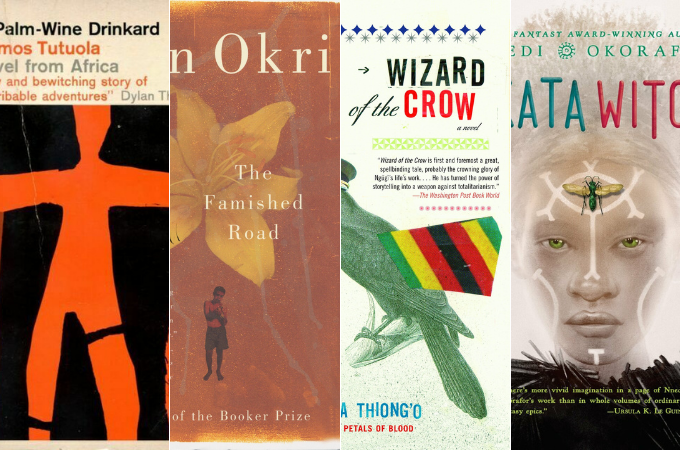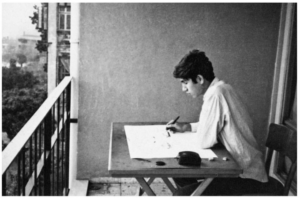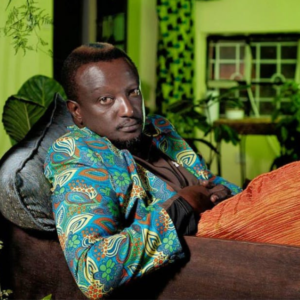
Africanjujuism is a term coined by the Nigerian-American novelist Nnedi Okorafor to describe a sub-category of fantasy centered on African life as lived on the continent. Okorafor said, in an article published on her website, that the term “respectfully acknowledges the seamless blend of true existing African spiritualities and cosmologies with the imaginative.” Just like Africanfuturism, another term she coined for African science fiction, Africanjujuism comes out of a need to capture the uniqueness of what African writers are doing when they explore familiar genres like fantasy. As far as names go, Africanjujuism may be a bit of a mouthful. But it is worth considering for the way it asks us to question any attempt to universalize what counts as fantasy in fiction and how to represent it.
Africanjujuism attempts to name a kind of fantasy that captures the complexities of African life, histories, and cosmology. African worlds have traditionally been inclusive of various aspects of life that are often kept separate in other parts of the world. Where for instance, in the west, people see the past, present, and future as very distinct categories of time, in many African cosmologies, time is believed to be more fluid. The figure of the ancestor, for instance, implies the idea of someone who is dead but is able to still be our contemporary. There are vast pantheons of deities, mythical beings, and non-human entities that exert all kinds of influences in African worlds.
Okorafor sees Africanjujuism as a “seamless blend” of these “cosmologies with the imaginative.” As such, an Africanjujuist novelist doesn’t hang on to the opposition between realism and fantasy because they believe them to be contrived labels we create to erase the complexities of existence, which is never quite simply realist or fantasy. Okorafor’s statement about Ngũgĩ wa Thiong’o’s Wizard of the Crow is telling: “I do not believe Ngugi set out to write a fantastical novel. I don’t think it even crossed his mind. I think he set out to write a book about Africa and in writing about Africa the magic naturally, organically sprouted.” Africanjujuism is a way of telling stories that inevitably draws out the fantasy that has always existed in everyday experience.
Okorafor’s work like the Akata Witch, Akata Warrior, and Zahrah The Windseeker are Africanjujuist, but so is Ben Okri’s The Famished Road, Amos Tutuola’s The Palmwine Drinkard, everything Helen Oyeyemi has ever written, and even a book like Thomas Mofolo’s Chaka. Even though Marlon James is not an African writer, his novel Black Leopard Red Wolf, in which he digs deep into African mythology and medieval histories could be placed in the Africanjujuist category, as well. Achebe is known to include elements of fantasy as a natural part of the everyday story world. Does that make a novel like Things Fall Apart Africanjujuist?
What is important to keep in mind about Africanjujuism is that it involves a form of storytelling through which fantasy comes organically out of the depiction of everyday life and cultural experiences. Bear in mind that this idea of organically arising fantasy is something Okorafor began exploring long before she coined the term Africanjujuism. In an essay published back in 2008 titled “Organic Fantasy,” Okorafor uses the example of a masquerade to illustrate. Masquerades are a cultural staple of many African societies. They are otherworldly beings but real and present in everyday life. They imply very complex ideas about time, history, and the non-human body. Because they straddle our world and elsewhere, they transport any story they are in beyond the binary of realism and fantasy. This beyond is what Africanjujuism speaks to.
When certain writers like Okri write about mythological beings that have lived a thousand lives or when Akwaeke Emezi writes about a character who is Ogbanje, these are not contrived literary inventions. “It is not,” as Okorafor puts it,”fantasy for fantasy’s sake.” They are attempts to capture a fantasy that is “more real than the everyday.”









COMMENTS -
Reader Interactions